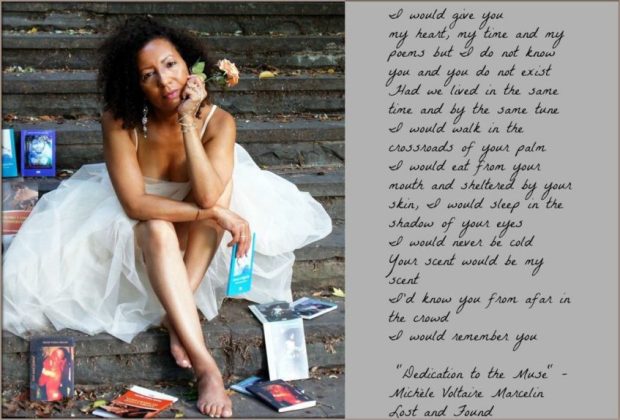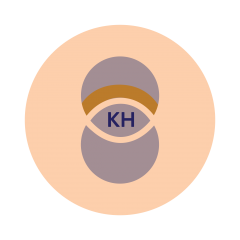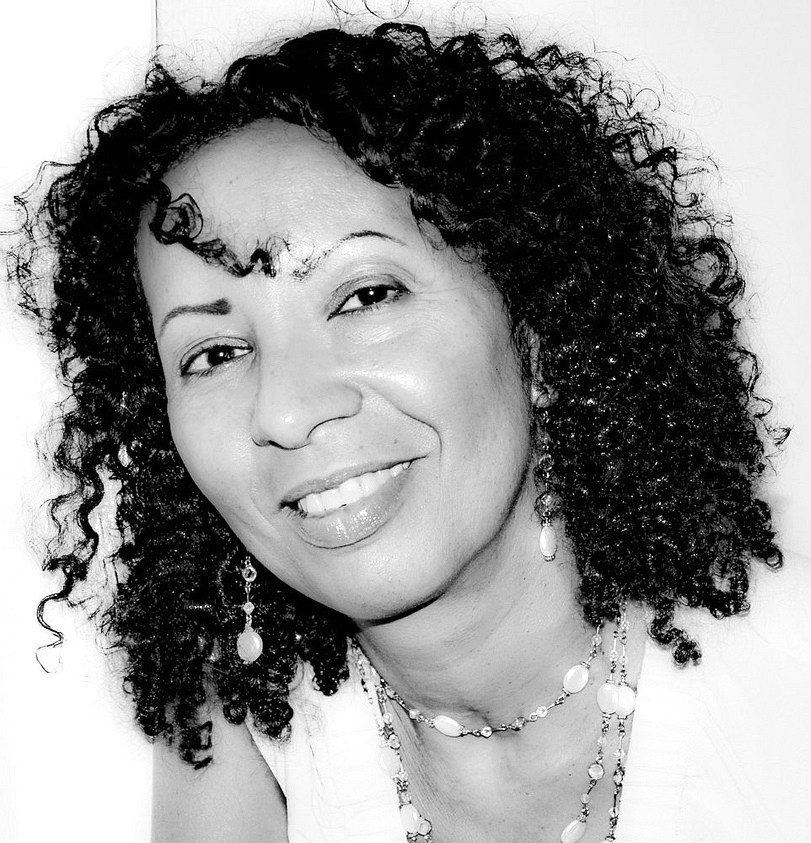The final spotlight for Haitian Heritage Month is on Michele Voltaire Marcelin. She is a poet, painter and writer. Her work has been published in French, English, Spanish and Kreyol. She also writes in three languages. Her artwork has been exhibited at the Art Museum of the Americas of the Organization of American States in D.C., the Cork Gallery at Lincoln Center and at the National Museum in Haiti. I saved her for last because Hubby and I chose her poetry to be featured at our wedding reception in 2012.

Here is one of our favorites:
Dreamscape
what magic names of places
shall i whisper in the dark
while you hold me
so we travel at least through the night
what sweet syllables of cities
ancient or new
what bird-laden trees
in what gardens
shall i offer you
so that at last i see the world with you
walk with me
through streets i have loved
in buenos aires, aix, lisbon, jacmel
keep your steps aligned with mine
walk with me
in venice
there is an alleyway called paradiso
i want you to kiss me there
in istanbul
a church of holy wisdom
where we will on the altar light candles
there is somewhere in port-au-prince
a crumbling wall fired with hibiscus
where blossoms wait to be chosen by you
to flower my hair
or shall we go off on a barge
floating on the seine
when the city darkens and the bridges spread
across the silent river
will we be drunk with each other
or will it be the boat dancing on the water
there is a stretch of sand i remember
in valparaiso
crusted with salt from the waves
we will leave our footprints there
drink pisco in a secluded bar in santiago
sit in pelhourino square in salvador
later i will giggle as you carry me
on the stairs to the capri grotto
somewhere there is a bed unmade
in a new york hotel
where we’ll return at dawn to make love
as sleepwalkers do
after seeing the ghosts of jazz musicians
at the blue note
somewhere someday we’ll go away
but tonight let’s recite as we would poems
names of places
that await our pleasure
hold my hands my beloved
look in my eyes
tonight let’s travel in our dreams
while we remain immobile in the dark
I hope featuring Haitian poets this month has opened you up to writers that you may have never had the pleasure of discovering on your own. I know choosing to celebrate my heritage this way has been a wonderful and educational experience for me.
Happy reading!




